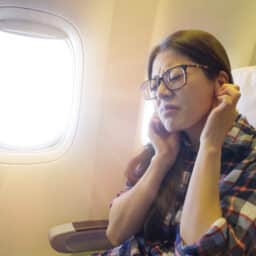What Is the Link Between Hearing Loss and Arthritis?

Arthritis is the swelling and tenderness of one or more joints, usually accompanied by joint pain and stiffness. With arthritis, you may find repetitive motion activities such as tennis at Herb Martinez Park or typing to be painful or difficult. Approximately 23.7% of adults in the United States have arthritis. This percentage increases in the…
Event Highlights the Connection Between Dementia and Hearing Loss

The Santa Fe Chapter of the Hearing Loss Association of America will host Dr. Norm Dawson, a remarkable individual who has triumphed over adversity by thriving as a person who has been deaf for most of his life. Dawson is a retired chiropractor and now works as a community health educator. The meeting will offer…
Can Poor Cardiovascular Health Contribute to Hearing Loss?

A review of research studying the correlation between hearing and heart health has found that negative cardiovascular health can impair both the peripheral and central auditory system, the system responsible for transforming sound waves into brain activity. Improved cardiovascular health has similarly been shown to positively influence those same systems. Reduced blood flow to the…
How To Manage Tinnitus While Flying

Many things can worsen tinnitus symptoms, including flying. Let’s examine why air travel can be hard for tinnitus sufferers as well as steps you can take to help minimize your symptoms next time you travel. What is Tinnitus? Tinnitus is often described as a ringing in one or both ears. However, some people hear clicking,…
What Is Low-Frequency Hearing Loss?

Did you know that there are different types of hearing loss? Let’s take a closer look at a rare type known as low-frequency hearing loss, including what sets it apart as well as the best treatment options. Low-Frequency Hearing Loss Looks Different on Audiogram People with low-frequency hearing loss struggle with lower-pitched sounds. It is…
How To Protect Your Hearing At Sporting Events

If you’re a sports fan, you know nothing beats the rush of seeing your favorite team play at their home stadium. All the cheers, music playing and the roar of the crowd can be exhilarating. Unfortunately, it can also pose a risk to your hearing health. Thankfully, you can still enjoy catching a live New…
How Can a Good Night’s Sleep Help Your Hearing?

Not getting enough sleep can leave a person with dark circles and a cranky disposition, but it may also lead to poor hearing. The average healthy adult needs seven to eight hours of sleep a night. Unfortunately, getting that eight hours can be hard to achieve with work, school or other life stressors. Let’s examine…
Tips for Building the Best Relationship With Your Audiologist

The amount of people who use hearing aids is steadily growing. Data analyzed from 2011, 2015 and 2018 found that “The overall proportion of participants 70 years and older who own and use hearing aids rose from 15.0% in 2011 to 16.9% in 2015 and 18.5% in 2018.” Knowing how to approach not only your…
How Is Traffic Noise Linked to Tinnitus?

Tinnitus is a buzzing, clicking or ringing noise in your ears. Tinnitus affects everyone differently, but it can lead to stress, fatigue, anxiety, headaches and more. Many things can contribute to the development of tinnitus. Recently, research has found a link between traffic noise and tinnitus. Tinnitus Risk Increases with Noise Levels Although anyone can…
Can Using Headphones Lead To Tinnitus?

Many of us spend a lot of time listening to music on our headphones, whether at work or walking through Santa Fe River Park West. While listening to headphones or buds responsibly is perfectly safe, listening at a high volume for long periods of time can damage your ears and lead to problems like tinnitus….
